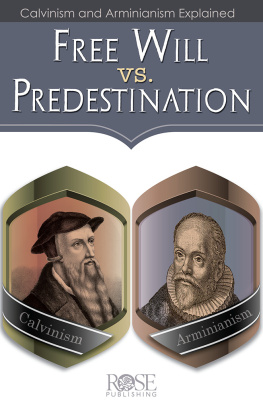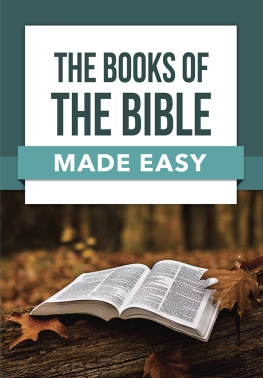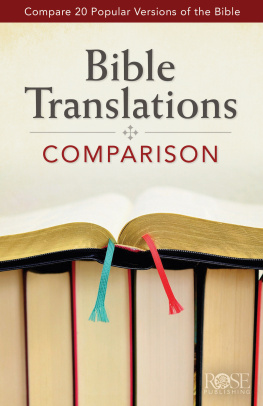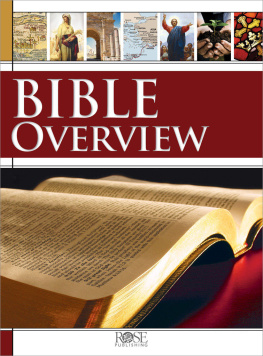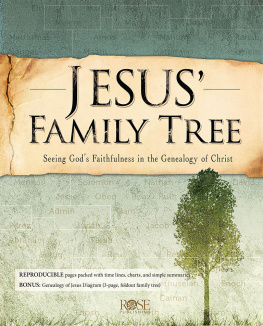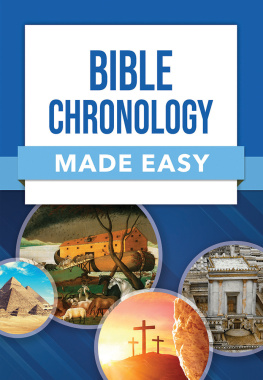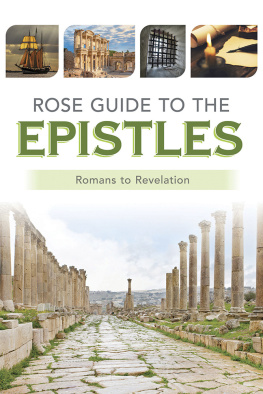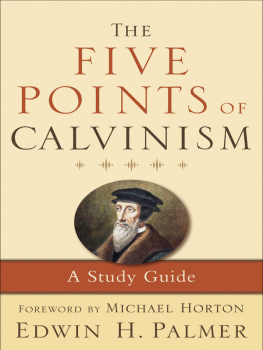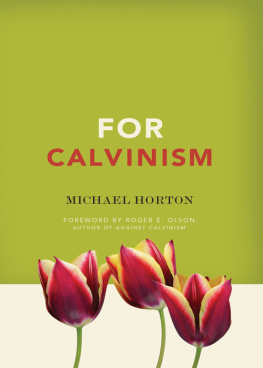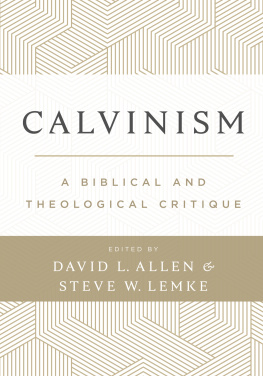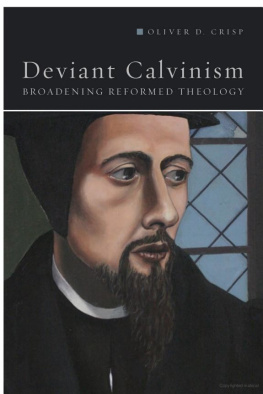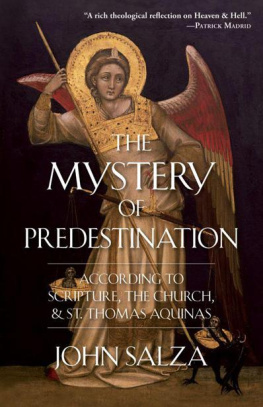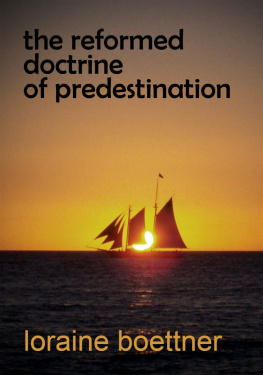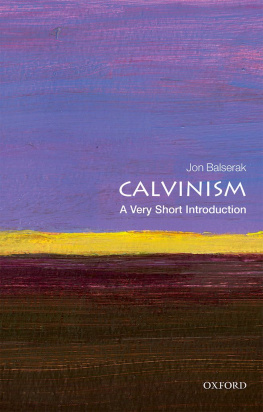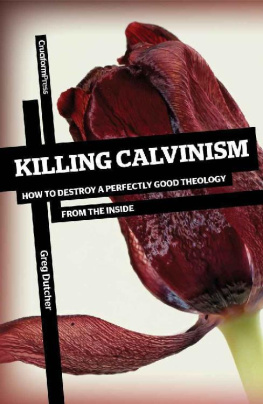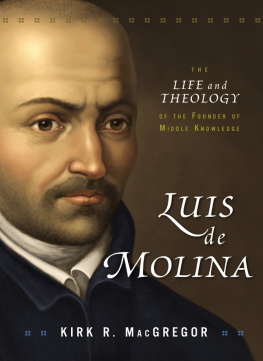The printed version of this eBook is the Freewill vs. Predestination pamphlet, ISBN-13: 9781596364783
Contributing Author: Benjamin Galan, MTS, ThM, Adjunct Professor of OT Hebrew and Literature; William Brent Ashby, BT
All Scripture quotations, unless otherwise indicated, are taken from the Holy Bible, New International Version NIV. Copyright 1973, 1978, 1984 , 2011 by Biblica, Inc. Used by permission of Zondervan. All rights reserved worldwide.
It is illegal to photocopy, transmit electronically, post on the internet, or reproduce this pamphlet in whole or in part in any form.
Last Updated: September 2018
2011 Bristol Works, Inc.
Rose Publishing, LLC
PO Box 3473
Peabody, MA 01961-3473 U.S.A.
Email: info@hendricksonrose.com
www.hendricksonrose.com
All rights reserved.
Build: 2022-04-21 10:38:13 EPUB 2.0
Important Words
Arminian Points When Arminiuss supporters confronted Reformed theologians in the Netherlands, they wrote five articles. These articles expressed their views on salvation. Because of their remonstrance a forceful protestthey became known as the Remonstrants, and their document as the Five Articles of Remonstrance .
Prevenient grace For Arminians, it refers to the grace of God that precedes human decision to come to God or reject him. Extended to all humanity, prevenient grace enables people to respond positively or negatively to Gods call.
Regeneration It is the new birth that believers experience (2 Cor. 5:17). For Calvinists, regeneration occurs before receiving the gift of faith from God. For Arminians, regeneration occurs only after people have exercised faith and come to Christ.
Remonstrance The word refers to a forceful protest. The Remonstrance of 1610 refers to the forceful protest that Arminiuss disciples expressed to Calvinist teaching in the Netherlands.
Saints Those who believe in Jesus. God will cause his chosen ones to persevere in and through all the things that life throws at them until they come into the full and eternal life God has for them.
Synod From the Greek word synodos, it means assembly or meeting. A synod is a meeting of church representatives. In Episcopalian churches, it is used for the meeting of Bishops of the church. In Reformed and Presbyterian churches, it is used for the meeting of church representatives, often pastors, elders, and other lay leaders.
TULIP TULIP is the acrostic that has become traditionally associated with Reformed theology. It is important to note that TULIP is a late (perhaps around the end of the 1800s) device to help people remember the five points of doctrine derived from the Synod of Dort documentsthe Canons of Dort . As with many acrostics, the fitting sentences that form the acrostic do not always express correctly or completely the idea behind it. TULIP, although a helpful memory device, on its own is an inadequate summary of Reformed doctrine.
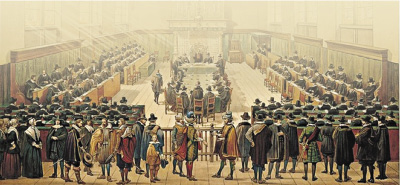
National Synod in Grote Kerk, Dordrecht
Free Will or Predestination?
The expression being saved points to the beginning of a wonderful relationship with God. These words mean much to Christians because they encompass much: A new relationship with God and other people, the renewal of our hearts and minds, the growth of faith and obedience in our lives, and much more. How does this salvation happen? More importantly, once we are saved, can we lose our salvation? Is sharing the good news of the gospel even necessary? Do we have to do anything to be saved?
Before seeing two ways to answer these questions, lets focus on the points with which all Christians agree. Regarding Gods merciful work of salvation, Christians agree that:
- Because of sin, all humans need Gods grace.
- Salvation from sin and condemnation is an act of God.
- Salvation is accomplished only by grace through faith in Christ.
- Works, good works or works of the Law, cannot lead one to salvation.
However, Christians do not agree on how Gods sovereignty and human freedom (free will) relate to each other in connection to salvation. Two views answer these questions quite differently: from a Calvinistic (predestination) or an Arminian view (free will). Although the answers available are not simple, they are important for our understanding of Gods mission in the world and our responsibility as believers.
Side-by-Side Comparison
This pamphlet will define and explain the terms in the following table.
See: | Arminianism | Calvinism |
Total depravity and free will (also called human ability) | Total depravity, also called radical depravity or total inability |
Conditional election | Unconditional election, also called sovereign election |
Universal redemption (also called general atonement) | Limited atonement, also called particular, purposeful, or definite atonement |
Grace can be resisted | Irresistible grace, also called efficacious or effectual grace |
Possibility of falling from grace | Perseverance of the saints, also called preservation of the saints or believers |
Predestination in History
Augustine (354-430)
He was the Bishop of Hippo (a city in Northern Africa, present-day Annaba, Algeria). An influential Christian thinker, his works continue to be studied. In his book Confessions , Augustine concluded, among many other things, that every area of the human nature was corrupted by the effects of sin.
Augustines Confessions (397398)
Augustines reply to Pelagius (412415)
Martin Luther (1483-1546)
As a German priest and professor of theology, his objections to church doctrine and practice initiated the Reformation. In The Bondage of the Will , Luther debated the great philosopher Erasmus of Rotterdam. Luther argued that original sinAdam and Eves sin in Edenhad so corrupted human nature, that now unaided, we are unable to do any good. Any righteousness we may have comes from Gods grace.
Martin Luthers The Bondage of the Will (1525)
John Calvin (1509-1564)
As a Reformer, Calvin had a profound influence on Protestant theology. Calvin believed that all the glory of salvation belonged to God. Calvin brought Gods sovereignty and mercy together in the historical doctrine of predestination: After the fall, humanity stood condemned before God. In his mercy, God decided to save many people from this condemnation; in his sovereignty, God chose and called those who would be saved. Humans, being unable to reach out to God, received Gods salvation without deserving it. That this election happens according to Gods will is proof of Gods sovereignty, mercy, and love. Calvins views are well presented in his debate with the Dutch theologian Albert Pighius and in his book The Bondage and Liberation of the Will .
John Calvins The Bondage and Liberation of the Will (1543)
Reformed churches
These are churches that follow Calvinistic teachings. They originated in countries like the Netherlands, Switzerland, France, and Germany. The Presbyterian churches, also Calvinistic, originated in the United Kingdom.
Synod of Dort (1618-1619)
Almost ten years after the death of Arminius (see next page), the Reformed theologians in the Netherlands called a Synod (assembly) in the town of Dordrecht. This synod responded to a document named The Remonstrance of 1610, which Arminiuss disciples drafted. The Canons of Dort , a confessional document for Reformed churches, outlines their view on Gods sovereignty, election, grace, and salvation.

